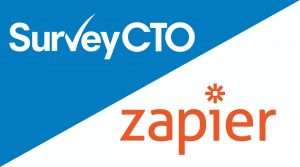Responsible data sharing with your partners
As development organizations work to expand their impact globally, achieving true interoperability becomes essential. While data sharing is a vital component of interoperability, it alone does not ensure seamless collaboration across diverse teams, sectors, and regions.
For interoperability to be fully realized, organizations must build strong, collaborative partnerships that facilitate smooth data exchanges and joint action toward common goals.
Establishing these partnerships involves more than just aligning on data standards; it requires trust, clear agreements, and well-defined collaboration frameworks that prioritize data security and accountability.
In this article, we’ll explore:
- Strategies for fostering partnerships that support interoperability
- How to use formal agreements like Memoranda of Understanding (MOUs)
- Successful examples of NGO-government collaborations you can emulate
- How data-sharing tools and best practices can empower organizations to work together more effectively
Building collaborative partnerships for interoperability
Collaboration is a cornerstone of interoperability, enabling organizations to share resources, insights, and data seamlessly across sectors. For development organizations, building partnerships is not only about technical data alignment; it’s about creating a people-centered approach where mutual understanding and shared goals guide the process.
Effective collaboration for interoperability includes strategies like multi-party data sharing, allowing stakeholders to securely exchange and access data in real time. Security is also a key priority, as sensitive information often needs to be protected even as it flows across diverse entities. By adopting best practices that balance accessibility with security, organizations can create a collaborative foundation that supports both technical needs and the trust essential for successful partnerships.
This people-centered approach fosters a sense of support and investment among all parties, creating an environment where data can flow freely and securely—leading to impactful, coordinated action that benefits everyone involved.
Tools for formalizing partnerships: MOUs and data sharing agreements
Formal agreements are essential to build effective, lasting partnerships.
Memorandum of Understandings (MOUs) and data-sharing agreements provide clear guidelines on how data will be shared, stored, and used between organizations, ensuring alignment on expectations, responsibilities, and security protocols. These agreements serve as foundational tools that create trust and accountability, helping organizations navigate the complexities of data interoperability.
MOUs
An MOU is often the first step in formalizing a partnership, outlining the general terms of collaboration and mutual objectives. It helps each organization understand the scope and goals of the relationship without diving into the technical details.
Data-sharing agreements
Once there is alignment on the MOU, a more detailed data-sharing agreement can be created. This agreement specifies data-sharing processes, security measures, privacy considerations, and compliance with relevant regulations.
MOUs and data-sharing agreements also allow organizations to clearly define their roles and obligations, reducing the risk of misunderstandings and legal complications. By establishing these agreements early on, partners can focus on achieving interoperability, confident that their data-sharing practices are secure and compliant.
How organizations are creating successful data sharing collaborations

Strategic collaborations between NGOs, government agencies, and the private sector have demonstrated significant success in enhancing data interoperability and addressing complex challenges. For instance:
- The partnership between Google, the University of Maryland, and Global Forest Watch exemplifies how cross-sector collaboration can effectively monitor and protect forests. By deploying advanced technology and data analytics, this alliance has improved the ability to track deforestation and promote conservation efforts.
- Another notable example is the collaboration between the Census Bureau and the National Science Foundation, which has established a national network of Federal Statistical Research Data Centers. This initiative provides non-government researchers with secure access to restricted data, facilitating valuable research in science, health, and national security.
Collaboration with donors and funders is also essential for development organizations aiming to maintain transparency, accountability, and trust in their data-sharing practices. These partnerships allow organizations to demonstrate the impact of their efforts while also ensuring that sensitive data is handled responsibly. Securely sharing data with donors can lead to increased credibility, more impactful programs, and even continued or increased support.
- One significant initiative in this area is the Humanitarian Data and Trust Initiative (HDTI), led by the United Nations Office for the Coordination of Humanitarian Affairs (OCHA) Centre for Humanitarian Data, the Swiss Federal Department of Foreign Affairs, and the International Committee of the Red Cross (ICRC). This collaboration resulted in the Principled Framework for Responsible Data Sharing Between Humanitarian Organizations and Donors, which provides a structured approach to data sharing that respects privacy, security, and the diverse needs of stakeholders. This framework encourages organizations to consider ethical implications, standardize data-sharing practices, and foster trust with donors and funders.
Use digital data collection tools for data sharing
Tools like SurveyCTO and its external share feature also facilitate secure data-sharing practices, allowing organizations to share critical information with donors in real time while maintaining data security and privacy. By applying these frameworks and tools, organizations can enhance their partnerships with donors, creating a collaborative environment where data can drive informed decision-making, transparency, and sustained support.
See how SurveyCTO enables real-time visibility for stakeholders with data sharing and data monitoring capabilities.
Advancing interoperability through strategic collaboration
For development organizations, achieving true interoperability means taking strategic next steps to strengthen partnerships and drive lasting impact. By formalizing collaborations through MOUs and data-sharing agreements, organizations can establish clear guidelines that protect data security while enhancing operational efficiency. These structures pave the way for meaningful, data-driven action across NGO-government partnerships and other key alliances.
Building on these partnerships with donors and funders, supported by strong frameworks and utilizing the right digital tools all help ensure data-sharing practices remain responsible and transparent while sharing critical information, align on shared goals, and tackle complex challenges together.
Ultimately, interoperability isn’t just about technology—it’s about fostering trusted networks, uniting on common goals, and amplifying impact for sustainable, positive change on a global scale.
If you missed Part 1 on the essentials of data sharing for interoperability, catch up there first to explore foundational practices that make collaboration more impactful and secure.




